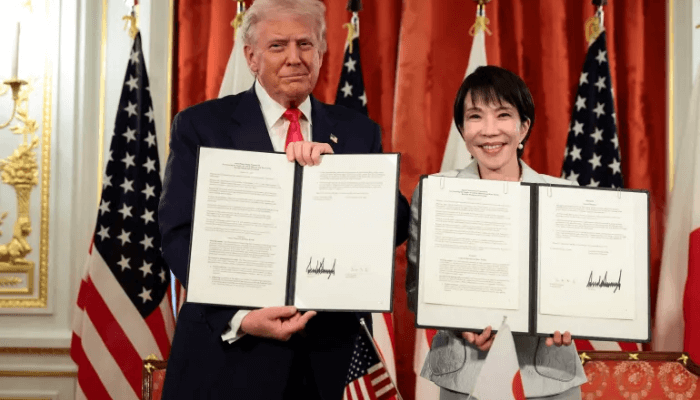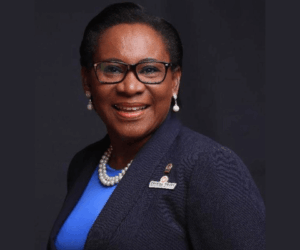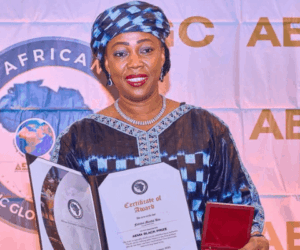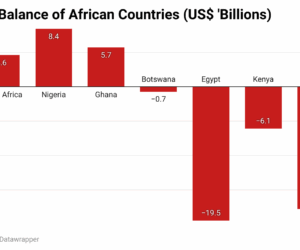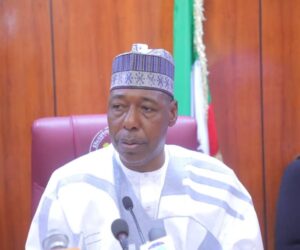Trump pushes rare earth deals in Asia as Japan’s new leader vows stronger defence
Donald Trump, United States president has used a Tokyo visit to tighten economic and security ties with Sanae Takaichi, Japan’s first female prime minister, while pushing a wider plan to break China’s dominance over critical minerals.
In a meeting filled with warm words and symbolic gifts, Trump praised Takaichi as a “great” leader in waiting. The prime minister said she would nominate the US president for the Nobel Peace Prize and promised to quicken a major military buildup aimed at countering a more assertive China.
Read also: Sanae Takaichi becomes Japan’s first female prime minister after historic parliamentary vote
Trump and Takaichi signed a new agreement to boost the supply of rare earths and other critical minerals that power everything from mobile phones to fighter jets. The deal includes plans for joint stockpiling, investment in new projects and a rapid response mechanism to protect supplies if a crisis hits.
A flurry of similar agreements has been struck with Malaysia, Thailand, Vietnam and Cambodia. The exact size and impact of the deals remain unclear. Some are only preliminary promises, raising questions about what will survive political shifts in those countries. Yet they all point in the same direction. Washington wants to lock in new partners and reduce its dependence on China ahead of Trump’s meeting with Chinese president Xi Jinping in South Korea.
Read also: Meet Sanae Takaichi, poised to be Japan’s first female Prime Minister
Experts caution that the shift will take time. Patrick Schroder of Chatham House told BBC that opening new mines and processing facilities in countries like the US, Australia or across Europe is far more expensive than operating in China, “Building new mines, refining facilities, and processing plants in regions such as Australia, the United States, and Europe comes with much higher capital costs, stricter environmental regulations, and more expensive labour and energy inputs [compared to China],”
Tokyo has already signalled it will match its security commitment with money. Takaichi plans to lift defence spending to two percent of national income, while offering a US investment package worth 550 billion dollars. That would include shipbuilding and increased purchases of American farm goods, natural gas and pick up trucks. These gestures could ease pressure from Washington for Japan to do more in its own defence.
The pageantry of the visit included a strong handshake at the Akasaka Palace and golf related gifts honouring Takaichi’s political mentor, the late Shinzo Abe. Trump praised Japan’s increased defence spending and highlighted what he called unprecedented diplomatic success in securing ceasefires in Asia and the Middle East.
Read also:Japan scraps exchange programme after ‘Kisarazu as Nigeria’s hometown’ distortion
Trump will next travel to South Korea, where he hopes to forge a trade peace with Xi Jinping that could mark a turning point in the US China rivalry. For now, the rare earths push is one more sign that competition between the world’s two largest economies is expanding from technology and tariffs into the resources that power the modern world.

